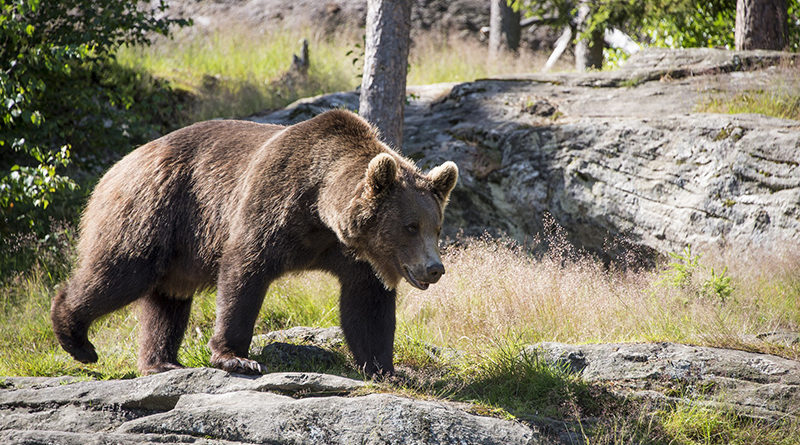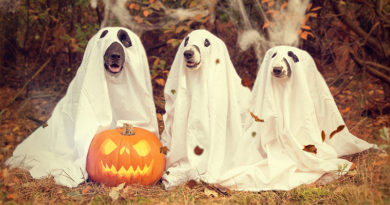Homophones: a bear or a bare?
Ein Homophon ist ein Wort, das die gleiche Aussprache wie ein anderes mit unterschiedlicher Bedeutung hat. Im Englischen gibt es viele solcher Wörter. „Bear“ (Bär) und „bare“ (nackt) sind zwei Beispiele.
By Moya Irvine
Earlier this year, a group of Congresswomen protested against a rule that said they weren’t allowed to wear sleeveless dresses. The women demanded the right to “bare arms”. This is a witty pun on the constitutional right to „bear arms“ (Waffen tragen). The pun is possible because “bare” and “bear” and “arms” are homophones – words that sound the same and sometimes even have the same spelling, but have different meanings.
Even native speakers have problems with some homophones. One really embarrassing mistake some people make is confusing “their”, “there”, and “they’re”. Native speakers can also get “your” and “you’re” and “its” and “it’s” mixed up. Even well educated people sometimes confuse less common homophones like “stationary” (standing still ) and “stationery” (writing materials).
Are you a homophone expert? Test yourself with our homophones exercise. Choose the correct word to complete the sentences.
1. The president spoke to his __________ before the meeting. (aid/aide)
2. I’m thinking of cutting down the __________ tree in the front garden. (fir/fur)
3. My colleague was off sick last week because she had the ________ . (flew/flu)
4. Queen Elizabeth has had the longest __________ in British history. (rein/reign)
5. Global warming is having a big __________ on plants and animals. (affect/effect)
6. I got lots of __________ for my presentation yesterday. Everyone liked it! (complements/compliments)
7. Protesters stood outside the _________ building carrying banners and chanting. (capital/capitol)
8. The school’s new __________ is very strict, but also fair. (principal/principle)
9. I need to __________ a button on my shirt. (sew/sow)
10. Please let us know ________ you will be coming to dinner tomorrow. (weather/whether)
11. It was a busy time at the farm, as we had to __________ the sheep. (shear/sheer)
12. Parents spend a lot of money on __________ when school starts. (stationary/stationery)
13. I really like this blouse but I’m not going to buy it because it is too __________ .(shear/sheer)
14. Stray dogs often have a lot of __________. (fleas/flees)
15. I really need some new socks. Mine are all __________. (holey/holy)
16. If you camp in this area, you must watch out, because there is a dangerous __________ about! (bare/bear)
17. Joe never watches series or sport on TV; he’s only interested in __________ affairs. (currant/current)
18 When I go to the cinema, I like to have a seat next to the __________. (aisle/isle)
19. They all started to __________ when they heard the bang. (flea/flee)
20. Spring is the best time to __________ these seeds. (sew/sow)
Answers
1. The president spoke to his aide before the meeting. (aid/aide)
2. I’m thinking of cutting down the fir tree in the front garden. (fir/fur)
3. My colleague was off sick last week because she had the flu. (flew/flu)
4. Queen Elizabeth has had the longest reign in British history. (rein/reign)
5. Global warming is having a big effect on plants and animals. (affect/effect)
6. I got lots of complimentsfor my presentation yesterday. Everyone liked it! (complements/compliments)
7. Protesters stood outside the capitol building carrying banners and chanting. (capital/capitol)
8. The school’s new principal is very strict, but also fair. (principal/principle)
9. I need to sew a button on my shirt. (sew/sow)
10. Please let us know whether you will be coming to dinner tomorrow. (weather/whether)
11. It was a busy time at the farm, as we had to shear the sheep. (shear/sheer)
12. Parents spend a lot of money on stationery when school starts. (stationary/stationery)
13. I really like this blouse but I’m not going to buy it because it is too sheer. (shear/sheer)
14. Stray dogs often have a lot of fleas. (fleas/flees)
15. I really need some new socks. Mine are all holey. (holey/holy)
16. If you camp in this area, you must watch out, because there is a dangerous bear about! (bare/bear)
17. Joe never watches series or sport on TV; he’s only interested in current affairs. (currant/current)
18 When I go to the cinema, I like to have a seat next to the aisle.(aisle/isle)
19. They all started to flee when they heard the bang. (flea/flee)
20. Spring is the best time to sow these seeds. (sew/sow)
| Photo: Pixabay






